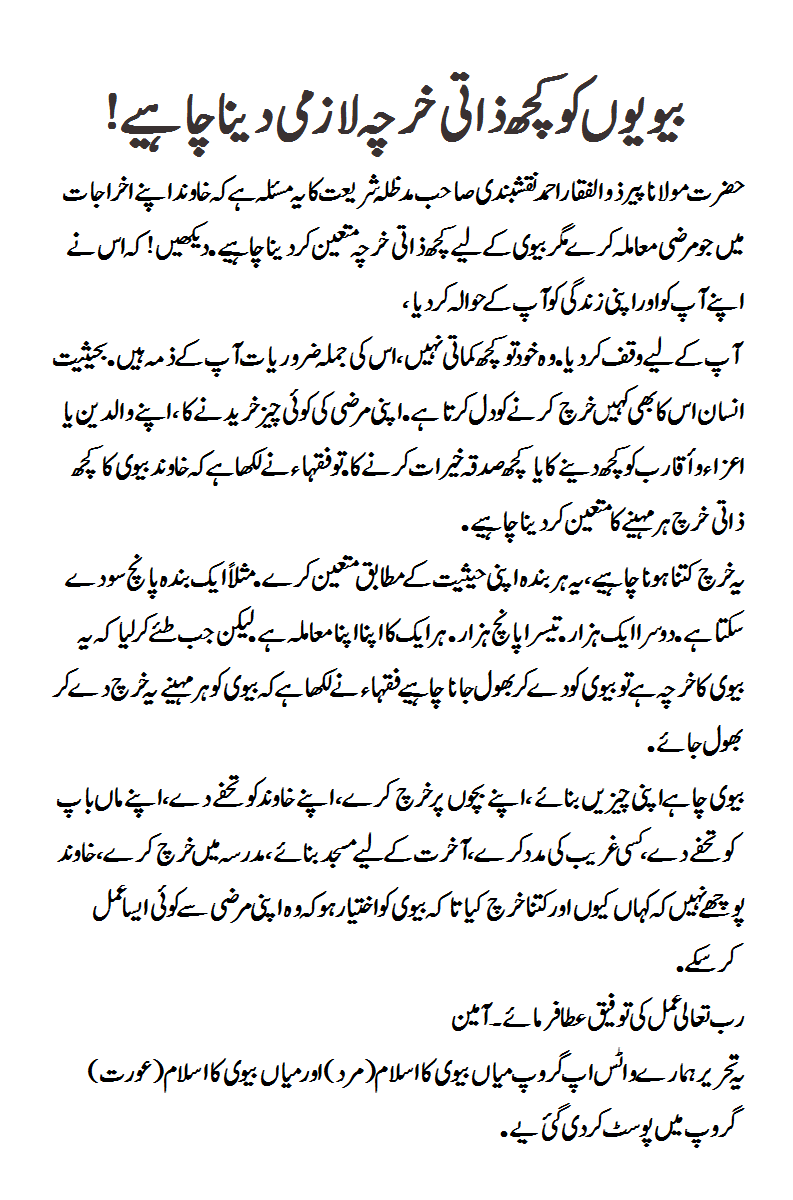In Pakistan, I have seen women proactively arguing for gender equality. We have heard countless rants about how they are entitled to have careers just like their spouses. So, does this also mean that when a woman is given the liberty to work, she must contribute financially along side her husband?
Is it to be understood between both partners that an equal share is to be injected towards the family’s expenditure? After all, isn’t ‘equality’ what women all around the world have been fighting for?
When a husband and wife both take on the role of breadwinners in a family, the question of how much each should contribute financially lingers.
I have come across a variety of financial sharing models in families. Each one of them have their pros and cons and, perhaps, there is no correct answer.
Here I am sharing a few stories that I have heard from couples in which only one spouse earns money, to situations where responsibilities are shared.
Please read on to see the various financial models in Pakistan.
Model 1: The sour sacrifice
Rehana* pays for entire household expenses because her husband believes that she earns a lot more than him. Thus, she is obligated to spend all of her earnings on household expenditures.
She’s quite frustrated, and wants her husband to take some responsibility, but she is putting up with the set up because she wants her marriage to work.
